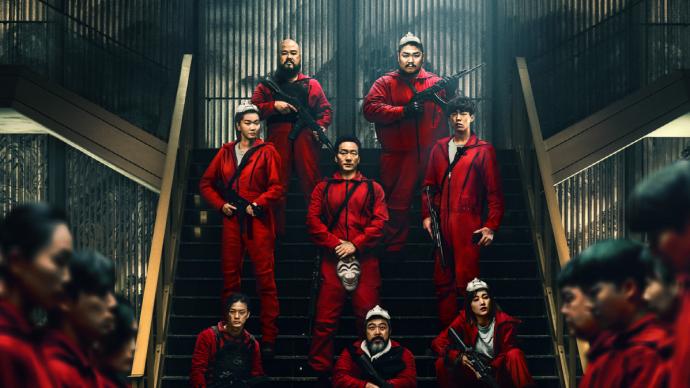
After the news that "The House of Paper" was remade into a Korean drama came, the first reaction was: Is it necessary to remake it? After all, the Spanish version of "Cash House" was on Netflix, and it was the most watched non-English series on Netflix before "The Squid Game." What's more, the fifth season of "Banknote House" was only launched in December last year, and this remake is almost seamless. Perhaps Netflix sees that "Paper House" itself is a big IP, and the Korean drama "Squid Game" has become a global hit. Netflix hopes to use this shareholder wind to make the Korean version also popular. 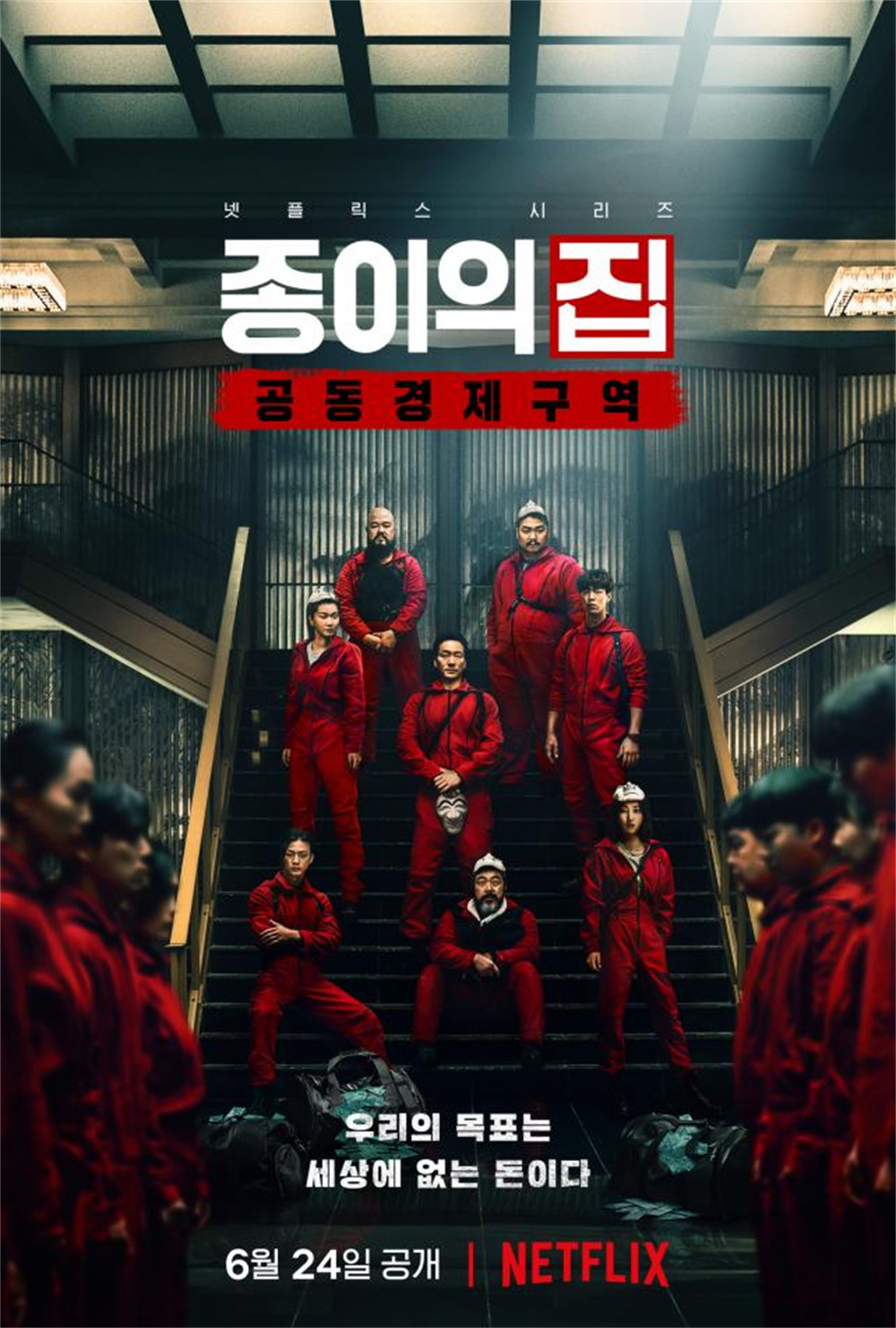

It is dangerous, the specter of anti-government is roaming, and several protagonists are marginal figures in society, with anti-system, anti-government and anti-state impulses surging in their hearts. They were going to rob Spanish banks because "the money went to the banks, the money went straight from the note mills to the pockets of the richest". "Those who steal the hook will be punished, and those who steal the country will be lords." They "steal the country" and become heroes cheered by everyone as they wish. Critics raved about how it resonated with global audiences "from the social and economic tensions it portrayed, and because of the utopian escape it offered".
It's romantic again. It was not until the fifth season that the two sides really lost control of the killing, otherwise most of the time it was an intellectual duel between the professor and the police, the audience was often amazed by the high IQ crime, and the pendulum of value was also biased towards the gang of thieves. Whether it is inside or outside the banknote house, even if the protagonists are on the edge of life and death, they still talk about polyamorous love and do double sports energetically. The smell of hormones is sometimes heavier than the smell of blood.
The Korean version of the adaptation obviously failed to grasp these essences. The clumsy part of the screenwriter is that it has written the world story "real" and become full of Korean flavor. What's even more funny is that the background of the story is still set in 2025, which has not yet come, and the bright fiction greatly weakens the audience's sense of substitution.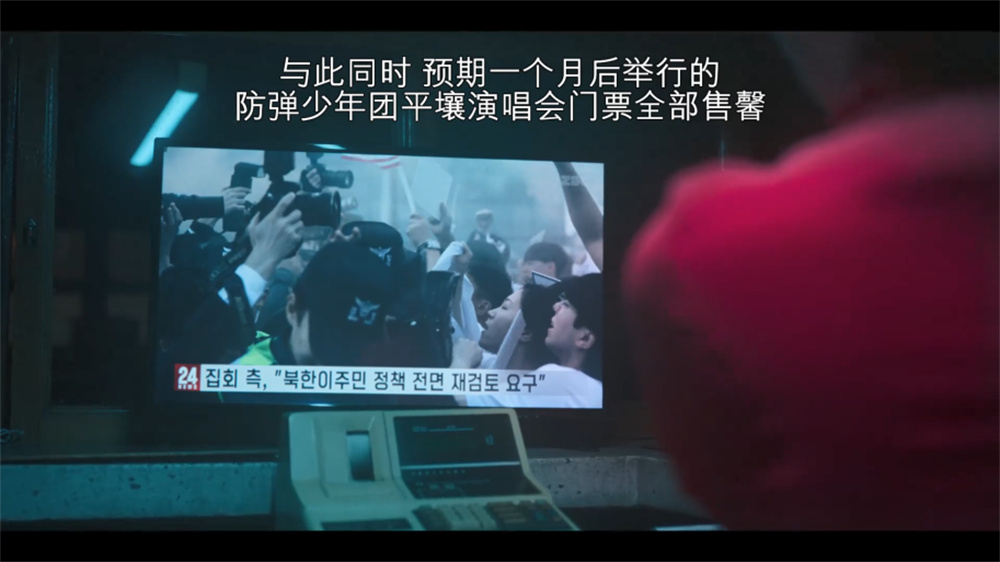
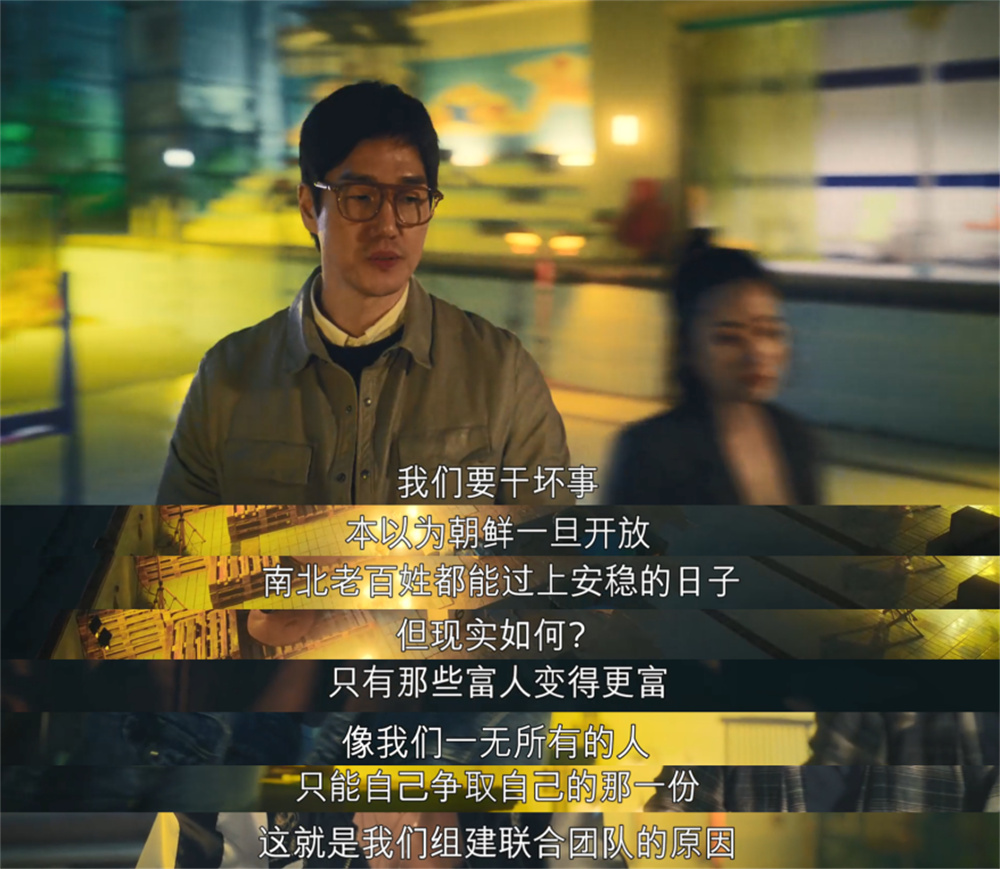
"Tokyo" (played by Kim Jong-seo) no longer has the madness, impulsiveness and ruthlessness of the original. The screenwriter also wrote this character very "real" - a North Korean girl who loves Hallyu and originally had a good imagination of South Korea, because of the cruelty of reality, she became a desperate killer in anger. This is the common growth background of the protagonists in Korean dramas, except that Tokyo is Korean. East Asian screenwriters don't seem to have the ability to imagine madness. We are keen on writing and conveying the truth. For any anti-social personality, we must finally find the social source.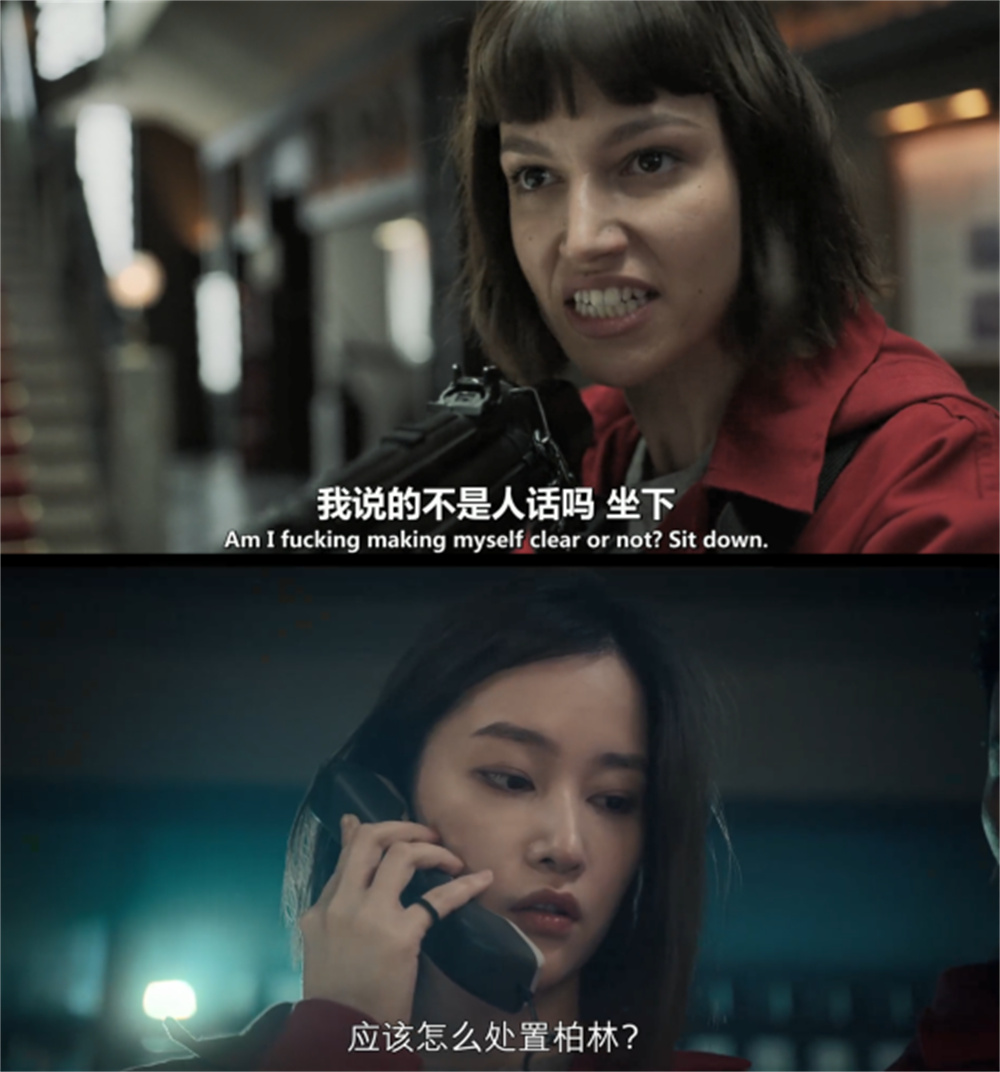
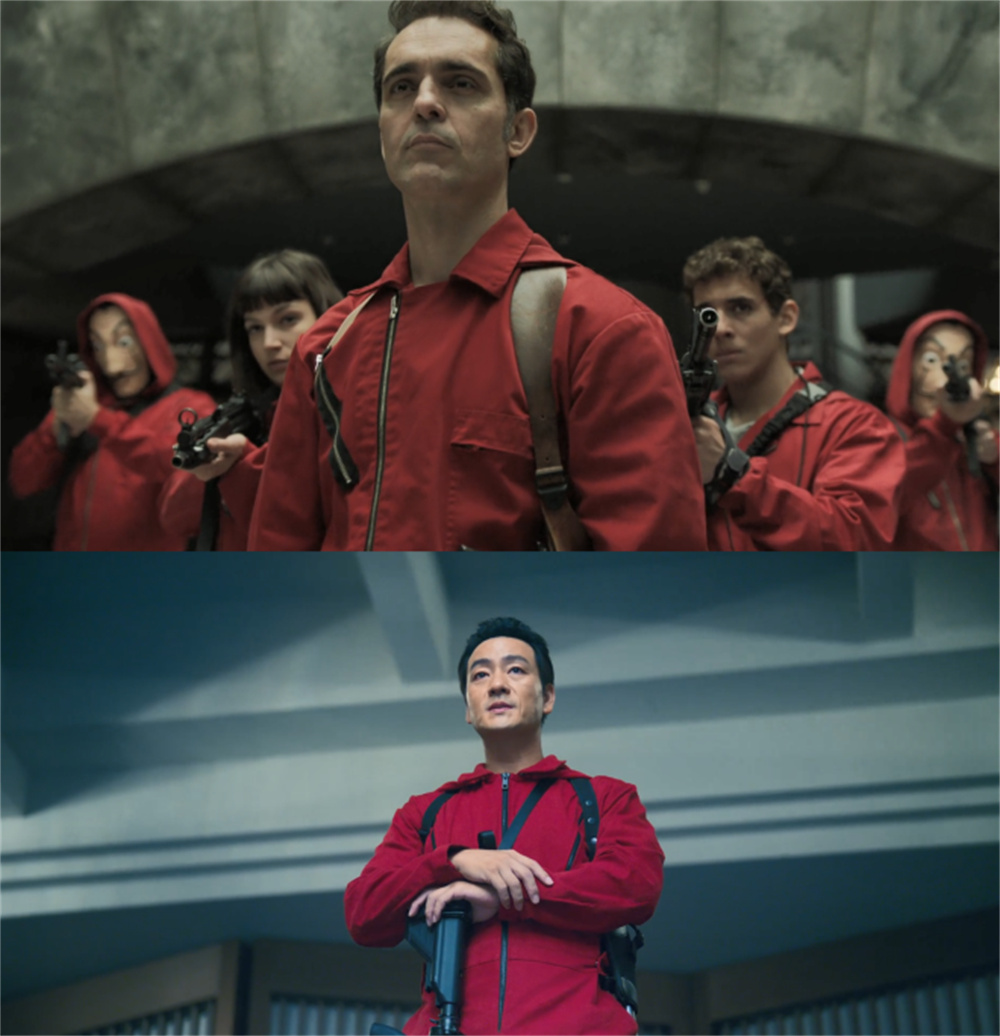
The professor in the original is very well portrayed. He is the brain of the team, strategizing and controlling everything, repeatedly turning danger into danger, and having excellent intelligence; he is by no means a "magic man", he will be nervous when risks come, and he is clumsy in love with almost no love experience. With the cute appearance of actor Alvaro Mochi, the whole role is quite pleasing. In the first season, he played almost half of his role, and the audience watched it with relish. In the Korean version, the professor (played by Yoo Ji-tae) is really a professor. When he is calm, he is boring, and he is easy in his emotions, but he is greasy, and the character design easily reminds the audience of those genius prosecutors or genius lawyers in Korean dramas... …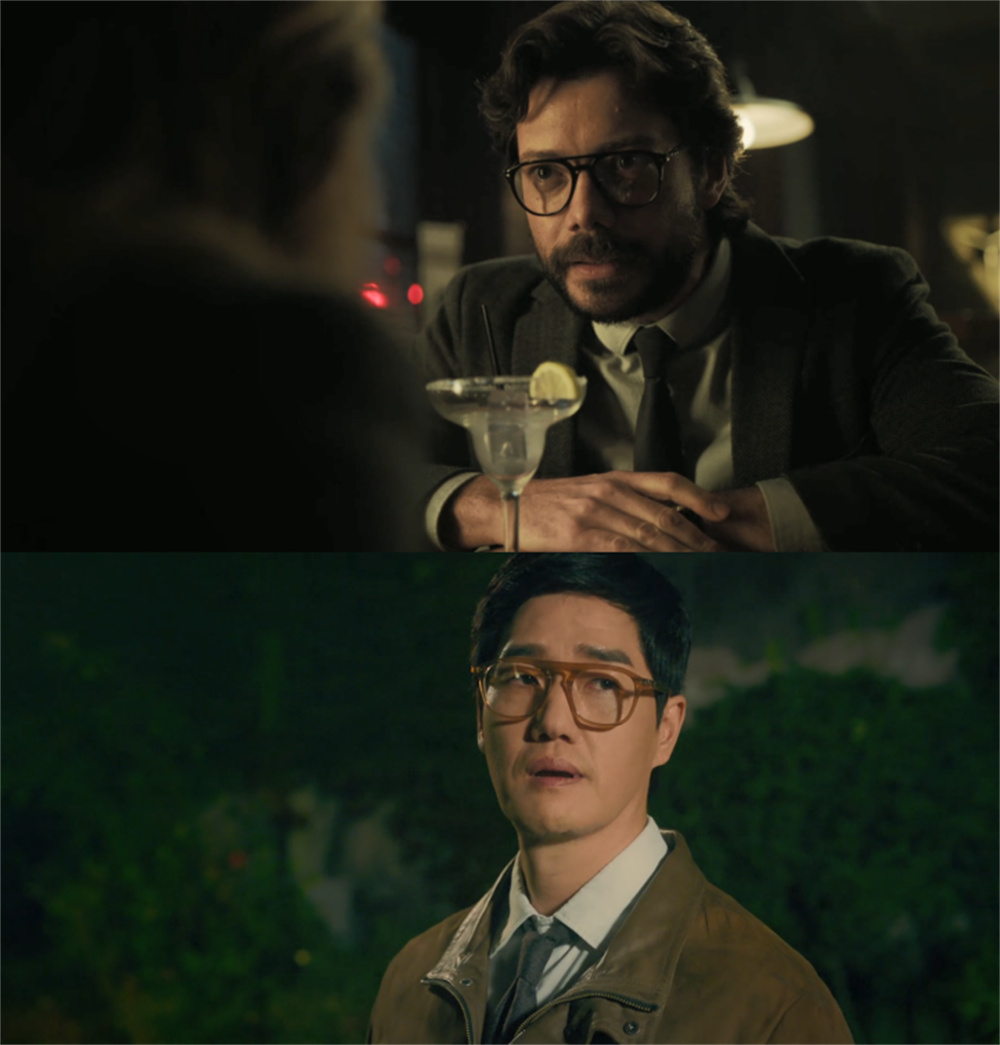
At present, South Korea has become the core of Netflix's content in Asia, and Netflix is increasingly dependent on Korean dramas. The wave of streaming media does give Korean TV dramas more resources and more opportunities, but it does not necessarily bring more creativity. This is somewhat determined by Netflix's algorithm genes, too keen on IP, too keen on sequels, keen on computing and catering to the tastes of most people. Netflix’s share price has been falling since the beginning of this year, and it has fallen by 70% from the peak period of “Squid Game”. It is not only related to the competition of streaming media, but also to the overall mediocre and unsustainable explosion of original content.
The Korean version of "Paper House" is an example. There will also be a sequel to this show, so it is hesitant to watch it or not.

Korean version of "The House of Paper" poster
The first time I watched the 6 episodes of the first season, I came to a conclusion: at least the first season is not to expect to replicate the miracle of "Squid Game". Looking at the names of the screenwriters and directors, the reputation of the past works is dull, and it is probably the third-tier level in Korea. The Korean version of "Paper House" has the foundation of the original version, and it is not too bad, but the screenwriter and director did not perform exceptionally this time. Platforms such as Rotten Tomatoes, IMDB, and Metacritic, which once gave the Spanish version high scores, all gave the Korean version a low score.
The original version on IMDB scored 8.2 points, and the Korean version scored 5.1 points.
The original five seasons, although the levels vary from season to season, aside from removing some bugs and the wisdom of the characters, on the whole, this is a very good dinner drama: the whole process is high-energy, and there are wonderful reversals everywhere. The plot, the characters and brain holes that subvert the previous type of narrative, the vivid three-dimensional characters and the emotional relationship full of tension... The original version can be popular all over the world, because it hits the hidden but eager anti-antibody system in people's hearts, tearing up the authoritative Impulsive, the whole show is permeated with a dangerously romantic vibe.It is dangerous, the specter of anti-government is roaming, and several protagonists are marginal figures in society, with anti-system, anti-government and anti-state impulses surging in their hearts. They were going to rob Spanish banks because "the money went to the banks, the money went straight from the note mills to the pockets of the richest". "Those who steal the hook will be punished, and those who steal the country will be lords." They "steal the country" and become heroes cheered by everyone as they wish. Critics raved about how it resonated with global audiences "from the social and economic tensions it portrayed, and because of the utopian escape it offered".
It's romantic again. It was not until the fifth season that the two sides really lost control of the killing, otherwise most of the time it was an intellectual duel between the professor and the police, the audience was often amazed by the high IQ crime, and the pendulum of value was also biased towards the gang of thieves. Whether it is inside or outside the banknote house, even if the protagonists are on the edge of life and death, they still talk about polyamorous love and do double sports energetically. The smell of hormones is sometimes heavier than the smell of blood.
The Korean version of the adaptation obviously failed to grasp these essences. The clumsy part of the screenwriter is that it has written the world story "real" and become full of Korean flavor. What's even more funny is that the background of the story is still set in 2025, which has not yet come, and the bright fiction greatly weakens the audience's sense of substitution.

In 2025, BTS will hold concerts in Pyongyang, North Korea.
At that time, although South Korea and North Korea had not yet been unified politically, they had already begun to unify economically. The two sides jointly established a "common economic zone" and North Korea and South Korea jointly issued a unified currency. He thought that economic cooperation would benefit the people at the bottom, but in the end it was the pockets of the capitalists who were rich. So the professor gathered a group of fringe elements who were dissatisfied with the society. They decided to break into the Mint in the Common Economic Zone and steal 4 trillion won... …
Had it not been for the economic reunification of North and South Korea, would this story not exist?
Western audiences don’t know much about the relationship between the DPRK and the ROK, nor are they interested that much; as an East Asian audience, although I know a lot about it, I am also tired of watching the stereotyped narrative of the relationship between the DPRK and the ROK in Korean movies and TV dramas. From the early years of "Life and Death", "Common Security Zone", and "Flying Taiji Flag" to "Crash Landing on Love", "Iron Rain", "The Secret Service" and "Iron Rain 2: Summit" in recent years, South Korean screenwriters have expressed concern about North Korea and the North-South relations follow the same vision. This single and boring imagination also makes the characters of several protagonists lose their charm compared with the original."Tokyo" (played by Kim Jong-seo) no longer has the madness, impulsiveness and ruthlessness of the original. The screenwriter also wrote this character very "real" - a North Korean girl who loves Hallyu and originally had a good imagination of South Korea, because of the cruelty of reality, she became a desperate killer in anger. This is the common growth background of the protagonists in Korean dramas, except that Tokyo is Korean. East Asian screenwriters don't seem to have the ability to imagine madness. We are keen on writing and conveying the truth. For any anti-social personality, we must finally find the social source.

The picture above is the original Tokyo version, and the picture below is the Korean version.
Berlin was the original's most popular character, a sullen pervert, but also a graceful, laid-back pervert, sometimes reminiscent of Hannibal from Silence of the Lambs, or T-BAG from Prison Break . In the Korean version, Berlin (played by Park Hae-soo) has become a ruthless character who survived in the North Korean prison. He has no elegance, and besides being simple and rude, he also has a strong earthy flavor.
The picture above is the original Berlin version, and the picture below is the Korean version.
Rio (played by Lee Hyun Woo) is a rebellious second-generation rich in Korean dramas; Denver (played by Kim Ji-hoon) worked hard to recreate the original version, but Kim Ji-hoon, who is following suit, is not as charming as the original pervert he played in the Korean drama "Flower of Evil"; the original version The "lubricant" Nairobi (played by Zhang Yunzhu), a team with a strong sense of presence and a single-minded focus on money, has greatly diminished the sense of presence in the Korean version, and the character's memory points are much worse than the original version; not to mention poor Helsinki and Oslo, there are almost no role.The professor in the original is very well portrayed. He is the brain of the team, strategizing and controlling everything, repeatedly turning danger into danger, and having excellent intelligence; he is by no means a "magic man", he will be nervous when risks come, and he is clumsy in love with almost no love experience. With the cute appearance of actor Alvaro Mochi, the whole role is quite pleasing. In the first season, he played almost half of his role, and the audience watched it with relish. In the Korean version, the professor (played by Yoo Ji-tae) is really a professor. When he is calm, he is boring, and he is easy in his emotions, but he is greasy, and the character design easily reminds the audience of those genius prosecutors or genius lawyers in Korean dramas... …

The picture above is the original Professor, and the picture below is the Korean version.
If the original version is a product of passion and creativity, then the Korean version of "Billing House" is a Korean drama on the assembly line, deeply engraved with the brand of Korean dramas. Of course, it's not that this drama is bad. If you haven't seen the original version, you can still follow it as a decent Korean drama with interest. But after watching the original version, it is inevitable that the Korean version is boring - the plot is still dangerous, but it is not romantic, no passion, less nervous, and loses its incitement to the audience.At present, South Korea has become the core of Netflix's content in Asia, and Netflix is increasingly dependent on Korean dramas. The wave of streaming media does give Korean TV dramas more resources and more opportunities, but it does not necessarily bring more creativity. This is somewhat determined by Netflix's algorithm genes, too keen on IP, too keen on sequels, keen on computing and catering to the tastes of most people. Netflix’s share price has been falling since the beginning of this year, and it has fallen by 70% from the peak period of “Squid Game”. It is not only related to the competition of streaming media, but also to the overall mediocre and unsustainable explosion of original content.
The Korean version of "Paper House" is an example. There will also be a sequel to this show, so it is hesitant to watch it or not.
Related Posts